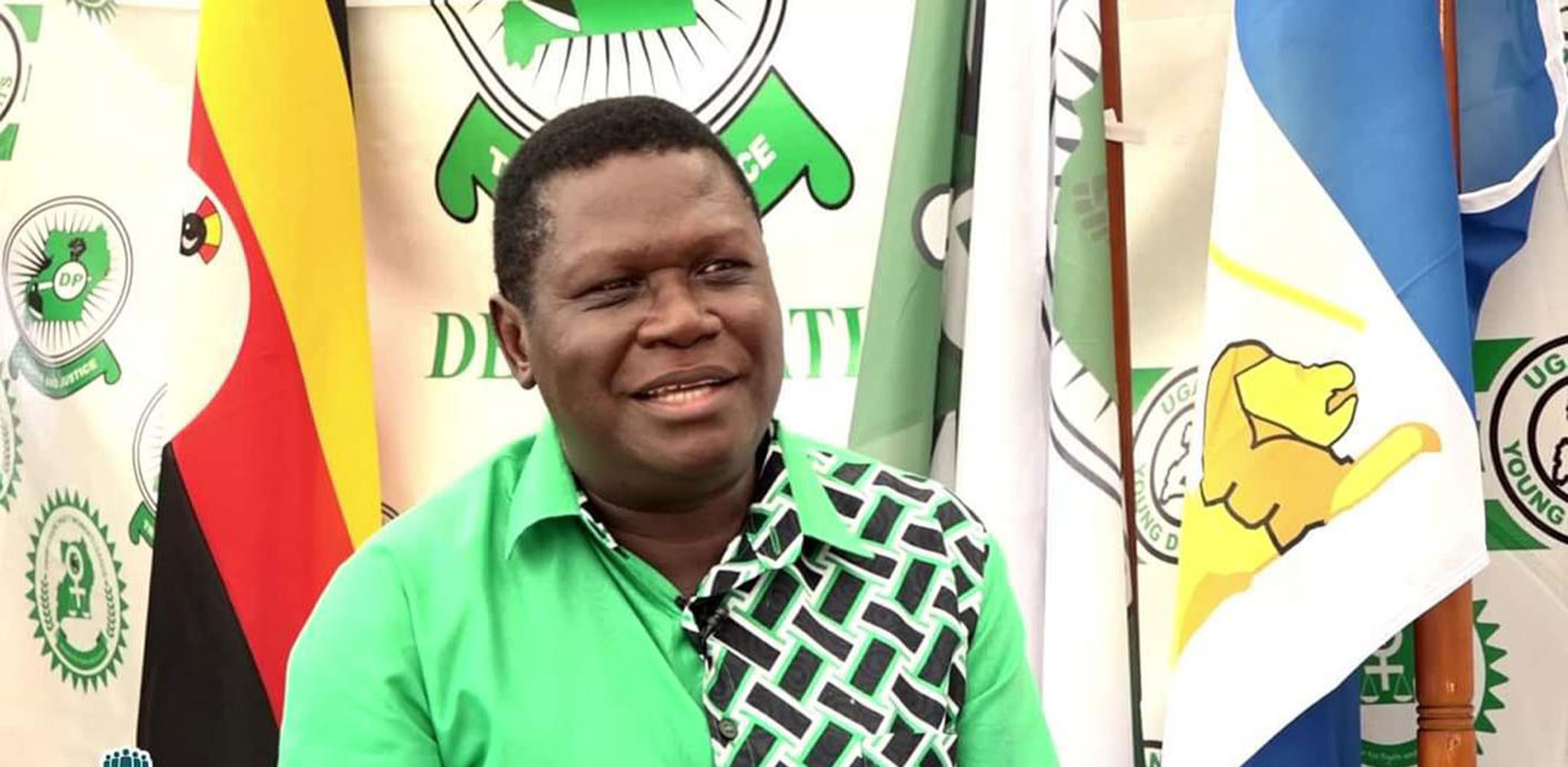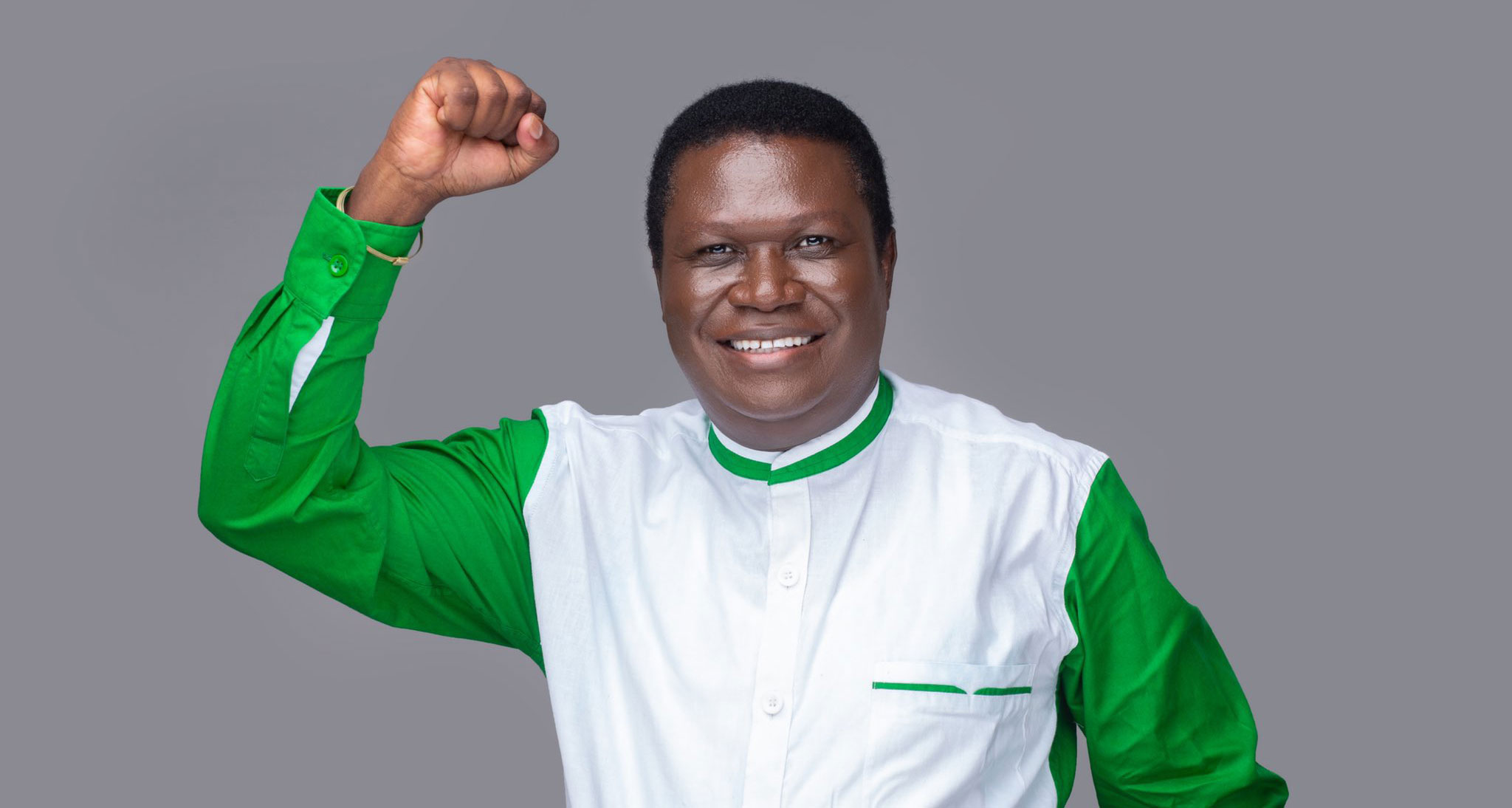The Democratic Party (DP) leader has taken to engaging in self-deprecating humour to come to terms with a dream that becomes more distant by the day
Democratic Party (DP) president Norbert Mao used the occasion of the burial of former Speaker of Parliament Jacob Oulanyah last Friday to recount a conversation he had with the deceased.
After Oulanyah was elected Speaker in May 2021, Mao said, the freshly elected Speaker challenged the DP leader in a telephone conversation that now that he had landed the national speakership, Mao, who was the president of the students’ guild at Makerere University when Oulanyah was speaker, had to step up and take over the country’s presidency so they would replay the scenario of three decades ago.
That was most likely a joke that the two men heartily laughed at, and Mao told the mourners that in response to Oulanyah’s challenge, he retorted, “the traffic jam at the top is too much”.
By “traffic jam” Mao refers to President Museveni’s longevity in power – 36 years and counting – a subject Mao has continually returned to in the recent past. Museveni’s prolonged stay in power, Mao says, has made those who wish to replace him wait for too long in the queue, frustrating the progression of the careers of younger leaders.
Because of this state of affairs, Mao has come up with a response. Remmy Bahati, a Ugandan journalist based in the United States of America, hosted Mao on Twitter Spaces a couple of months ago and, among other things, put to him a question about when he plans to leave the leadership of DP. Mao’s response was equivocal, giving no clear answer, until he eventually said, “Let me give you a clue; I will move once the traffic jam clears.” In plain language, Mao will leave the DP leadership when Museveni leaves the national presidency.
Lifelong dream
As a budding politician, Mao never made a secret of his intention to run for the national presidency, and many of his colleagues grew uncomfortable over what they viewed as his single-minded pursuit of the high office. The younger Mao, as a member of DP, was accused of refusing to submit to hierarchy and always looking to be the leader.
He was a rabble-rouser when Dr. Paul Ssemogerere led DP, starting a pressure group he named UB40 – for Ugandans below 40 years of age – under which he argued that Uganda’s problems were caused by politicians who were born before Independence, and could only be solved by those born after. Mao was buoyed by youth at the time and was keen to play the age card. He is now in his mid-50s, trapped in “traffic jam” by his own admission, and his ideas have evolved.
Back in the day, as a shining member of the 6th Parliament – between 1996 and 2001 – Mao was routinely referred to as a potential president. Many said there was a possibility that he and the late Noble Mayombo would replay the hot campaign that they had had at Makerere University as they vied for the guild presidency in 1990. Mao had beaten Mayombo to the prize then. Mayombo’s star was also rising at the time, serving on the opposite side as a strong enforcer in the military and intelligence circles and spin master for the Movement government.
That was a time of relative idealism in Uganda’s politics, and even when Dr. Kizza Besigye broke ranks with his former high profile patient and commander, Museveni, in the lead up to the 2001 elections, and told his colleagues within the Movement that they needed to stand up to Museveni because he intended to pursue a presidency-for-life, many of his senior colleagues dismissed him.
These senior leaders – including Bidandi Ssali, the late Eriya Kategaya and Amanya Mushega – believed that Museveni had no intention of offering himself for the presidency beyond 2006, when his constitutionally permitted two five-year terms were bound to expire. They even got Museveni to sign an election manifesto from 2001 in which he declared that he was standing for his second and last term as president.
The two-term culture as the maximum period one may lead a party or the country had gained currency in the 1990s, not only in Uganda but in many African countries because long-serving rulers who had taken power after independence in many African countries had left unspeakable ruin in their wake. Keeping in power for long was so frowned upon in those days that even Museveni, when he had just grabbed power, quipped that Africa’s problem was leaders who overstayed in power.

Shattering a dream
The two-term culture, however, was never allowed to take root in Uganda even after it had been written into the constitution in 1995. When Museveni’s two five-year terms were due to expire in 2006, he sponsored a process that led to the removal of the term limits from the constitution. This move left some of his colleagues, who he had convinced to support him for what he told them would be his final term, jilted. But that, too, was resolved with time.
Mao was one of the legislators who fought hard to ensure that the term limits for the presidency were not deleted from the constitution, and he and former Aruu County MP Samuel Odonga-Otto wrote a minority report opposing the majority report that the Legal and Parliamentary Affairs Committee of Parliament that was led by the late Oulanyah had written on the removal of term limits for the presidency.
Mao and his ilk were outnumbered, however, and the term limits for the presidency were deleted from the constitution in 2005. But the principle that an elected official should not serve for more than two terms in one office was still alive in Mao’s head, and he pushed the limits to make his point.
Even though the position of Member of Parliament (MP) had no set maximum number of terms, Mao had promised his voters in what was Gulu Municipality at the time that he would serve two terms as their MP, and then move to challenge for the presidency.
And when his two consecutive terms as MP expired in 2006, he did not run again for the seat even after the big change in the constitution that had just occurred to let Museveni continue in office. Apart from Mao, only former Makindye West MP Hussein Kyanjo comes to mind as the only other MP who promised to serve a maximum of two terms and lived by his word, between 2001 and 2011.
The year 2005 was one of change within DP itself, with Ssemogerere deciding to step down as the leader of the party. Ssemogerere could have stepped down earlier – in the lead up to the 2001 election – if the man he had perhaps hoped to take over from him, Anthony Wagaba Ssekweyama, had not died unexpectedly in a road accident in October 2000. There were some other DP members who wanted to run for the presidency, in particular the lawyer Francis Bwengye and the late Hajji Nasser Ntege Ssebaggala, who had just returned from serving his prison sentence in the US over fraud.
Ssemogerere, in charge of DP since 1980 and having gone through two grueling elections as a presidential candidate – 1980 and 1996 – was 68 years of age and not keen to run again. In the meantime, Besigye had emerged as a potent challenger to Museveni, and the two men were not strangers to each other since Besigye had deputised Ssemogerere as minister of Internal Affairs in Museveni’s first cabinet in 1986.
Ssemogerere, therefore, threw his weight behind Besigye, and Hajji Ssebaggala would later follow suit after his candidacy was blocked due to a lack of academic qualifications. Bwengye insisted on running on his own but he was unable to move the DP base with him. Political parties were still restricted to operating at the headquarters under the monolithic Movement system but they still exercised some residual influence.
Mao, though he laid claim to being a member of DP, was too distant from the party’s leadership and membership at the time and identified more with UPC-leaning Oulanyah and Aggrey Awori who was also a presidential candidate in 2001.
The emergence of Besigye and the decision by Ssemogerere and Ssebaggala to drive the DP support to him was as abrupt as it was disruptive to Mao’s dreams. That was about the time the conversation turned away from Mao ever being a potent presidential challenger as Besigye took centre stage. Besigye fiercely challenged for the presidency in 2001 and fled to exile after the election amidst harassment and threats of arrest, but he returned in late 2005 to continue his mission and has never retired from it.

Road to DP leadership
In 2005, Mao offered himself for the presidency of DP but lost to the late John Ssebaana Kizito, who until then had been the party’s treasurer and had served as mayor of Kampala. Mao received the loss at Namboole with a tinge of bitterness and let loose a tirade against the party, accusing it of favouring Baganda. He mobilised the delegates from the northern region to boycott the elections for other leaders on the night until the party hierarchy talked him into a deal. Mao would become a vice president and manage Ssebaana’s presidential campaign for the 2006 election.
It is said that Mao and Ssebaana also struck a deal that the former would take over from the latter as leader of DP after five years. This happened in 2010 amidst acrimony, with a faction of the party boycotting the delegates’ conference in Mbale at which Mao beat the late Hajji Ssebaggala to become DP leader.
As DP leader, Mao has made two nonstarter attempts at the presidency – in 2011 and 2021 – and in 2016 when he did not run, he backed former prime minister Amama Mbabazi, who had broken ranks with Museveni but had a run so uninspired that he went into hibernation after the election and has only since resurfaced alongside Museveni on a few occasions.
Over the years, Mao criticised Besigye for what he saw as insisting on carrying the flag of the opposition to challenge Museveni, saying Besigye had turned the cause for change into a personal mission. Besigye ran against Museveni on four occasions between 2001 and 2016, always being returned as second-placed as he protested that his victories were stolen. But as president of the Forum for Democratic Change (FDC), Besigye cut short his tenure and ended up serving as party president for not more than eight years instead of the 10 that his party’s constitution allowed him.
On Mao’s part, he was expected to serve a maximum of two terms until 2020 but, citing an absence of term limits in the DP Constitution, he decided to run for a third term and given what he told the journalist Bahati, may look to extend his leadership of the party beyond the three five-year terms he has so far got.
When he left Parliament in 2006, Mao got elected LCV chairperson for Gulu District for the period 2006-2011. In 2016, he tried to reclaim the Gulu Municipality seat but failed to get nominated because, the Electoral Commission said, he was not a duly registered voter.
When the current term expires in 2026, it will be 30 years since Mao was first elected as an MP in 1996. It is hard to see him reinventing himself to recreate the aura that he once had around him. The opportunity to lead the country seems to have passed him by as he waited in the “traffic jam”.

